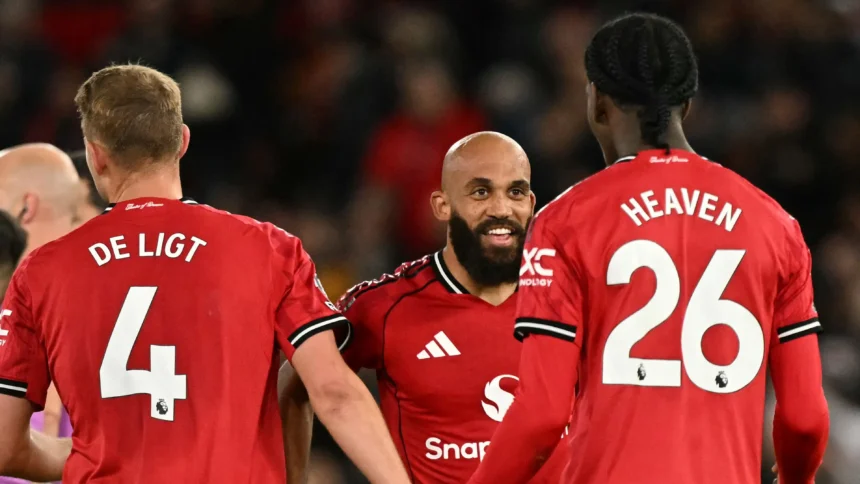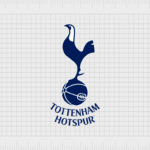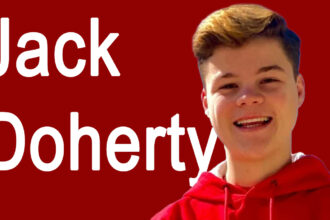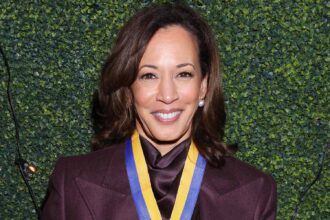When you talk about football clubs that have changed the landscape of world football, one name stands above most — Manchester United. With a history that spans over a century, Manchester United has become more than just a football club; it’s a symbol of passion, pride, and perseverance.
- The Origin and Foundation of Manchester United
- The Busby Era – Building the Manchester United Philosophy
- The Ferguson Era – The Golden Age of Manchester United
- Life After Ferguson – The Struggles and the Search for Stability
- The Ten Hag Revolution – A New Era for Manchester United
- The Financial Power and Global Influence of Manchester United
- Iconic Players Who Defined Manchester United
- Manchester United’s Rivalries
- The Global Fanbase of Manchester United
- The Future of Manchester United
- Conclusion: Manchester United – More Than a Club
From the humble beginnings of Newton Heath to the modern-day global powerhouse, Manchester United continues to captivate millions of fans across the globe. In this detailed article, we’ll dive deep into the origins, rise, legendary players, memorable matches, and the ongoing evolution of Manchester United in the modern football era.
The Origin and Foundation of Manchester United
From Newton Heath to Manchester United
Manchester Unit ed was not always known by its current name. The club was originally founded in 1878 as Newton Heath LYR Football Club by railway workers from the Lancashire and Yorkshire Railway depot. Initially, the team played in green and gold — colors that have become symbolic in fan protests and tributes over the years.
After facing financial troubles in 1902, local businessman John Henry Davies stepped in to rescue the club from bankruptcy. With his investment, the club was renamed Manchester Unit ed — marking the beginning of a new chapter in English football history.
Early Struggles and the Road to Success
The early years of Manchester Unit ed were filled with struggles, as the club fought to establish itself in the competitive English football landscape. But in 1908, under manager Ernest Mangnall, Manchester Unit ed won its first First Division title, signaling the start of something special. The club also claimed its first FA Cup in 1909, making its mark as a rising force.
The Busby Era – Building the Manchester United Philosophy
H3: Sir Matt Busby’s Vision
After World War II, Manchester Unit ed entered a transformative period under the legendary Sir Matt Busby, who took charge in 1945. Busby was a visionary who believed in nurturing young talent — a philosophy that would shape the DNA of Manchester Unit ed forever.
He built a team of young, exciting players known as the “Busby Babes.” This team brought flair and energy to English football, winning the league titles in 1952, 1956, and 1957.
The Tragedy of Munich
On February 6, 1958, tragedy struck when the Munich Air Disaster claimed the lives of 23 people, including eight Manchester Unit ed players. The event devastated the club and the footballing world.
But the resilience of Manchester Unit ed shone through. With the leadership of Busby — who miraculously survived the crash — the club rebuilt itself. This tragedy became the foundation of the club’s unbreakable spirit.
European Glory
Ten years later, in 1968, Manchester Unit ed made history by becoming the first English club to win the European Cup. Led by Sir Bobby Charlton, George Best, and Denis Law, the team triumphed over Benfica 4–1 at Wembley. This victory symbolized the club’s resurrection from the ashes of Munich.
The Ferguson Era – The Golden Age of Manchester United
Arrival of Sir Alex Ferguson
When Sir Alex Ferguson arrived at Manchester Unit ed in 1986, the club was struggling both domestically and in Europe. His early years were tough, but Ferguson’s determination to restore Manchester Unit ed’s greatness was unwavering.
By focusing on youth development, discipline, and attacking football, Ferguson slowly built a dynasty that would dominate English football for over two decades.
The 1990s Dominance
The 1990s marked the true beginning of Manchester Unit ed’s golden era. With stars like Eric Cantona, Ryan Giggs, Paul Scholes, and David Beckham, the team became unstoppable. Manchester Unit ed won multiple Premier League titles, FA Cups, and even achieved the historic Treble in 1999 — winning the Premier League, FA Cup, and UEFA Champions League in one season.
The 1999 Champions League final against Bayern Munich remains one of the most dramatic moments in football history, where Manchester Unit ed scored twice in injury time to seal a 2–1 victory.
The Class of ’92
One of the biggest reasons behind Manchester Unit ed’s success was the emergence of the Class of ’92 — a group of academy players including David Beckham, Ryan Giggs, Paul Scholes, Gary Neville, Phil Neville, and Nicky Butt. Their teamwork, loyalty, and excellence defined the Manchester Unit ed spirit for years to come.
Global Expansion
During the Ferguson era, Manchester Unit ed grew beyond football. It became a global brand, attracting fans from Asia, Africa, and the Americas. The club’s marketing strategy, sponsorships, and worldwide fan tours made Manchester Unit ed a household name everywhere.
Life After Ferguson – The Struggles and the Search for Stability
When Sir Alex Ferguson retired in 2013, it marked the end of an era. The transition period that followed was one of the toughest in the club’s modern history.
The David Moyes Era
David Moyes, handpicked by Ferguson, took over in 2013. However, he couldn’t replicate Ferguson’s success and was sacked within a year. The 2013–14 season saw Manchester Unit ed fail to qualify for European competition for the first time in decades.
Louis van Gaal and José Mourinho
Next came Louis van Gaal, who focused on rebuilding with tactical discipline. Under him, Manchester Unit ed won the FA Cup in 2016. Then came José Mourinho, who added the Europa League and EFL Cup in 2017, giving fans hope of a revival.
Despite these trophies, the club struggled with consistency and identity — a far cry from the glory days under Ferguson.
The Ole Gunnar Solskjær Chapter
Former player Ole Gunnar Solskjær took over in 2018 and brought attacking football back to Manchester Unit ed. Though he restored some joy and energy, inconsistency and defensive issues persisted. His tenure ended in 2021, marking yet another rebuilding phase.
The Ten Hag Revolution – A New Era for Manchester United
In 2022, Erik ten Hag was appointed as manager. Coming from Ajax, Ten Hag brought a structured approach focusing on discipline, tactical intelligence, and youth development — core principles that align with Manchester United’s tradition.
The New Structure
Under Ten Hag, Manchester United has rebuilt its playing style. The arrival of players like Casemiro, Lisandro Martínez, and Rasmus Højlund added strength and balance to the team.
Winning the Carabao Cup
In 2023, Manchester United lifted the Carabao Cup, their first major trophy in six years. It was a signal that the club was back on the path toward success.
Reconnecting with the Fans
Ten Hag’s leadership has helped reconnect the team with fans who were disillusioned by years of inconsistency. The club’s identity — fast-paced, attacking football — is slowly returning to Manchester United.
The Financial Power and Global Influence of Manchester United
A Commercial Empire
Beyond football, Manchester United is a commercial titan. The club’s global fanbase — estimated at over 1 billion people — has made it one of the richest clubs in the world.
Sponsorship deals with Adidas, TeamViewer, and Chevrolet have brought in massive revenues. The Manchester United brand value continues to thrive, even during turbulent times on the pitch.
The Old Trafford Legacy
Known as the “Theatre of Dreams”, Old Trafford has been home to Manchester United since 1910. With a capacity of over 74,000, it remains one of the most iconic stadiums in world football.
The atmosphere at Old Trafford on matchdays is electric, filled with chants, banners, and the spirit of generations of fans who live and breathe Manchester United.
Iconic Players Who Defined Manchester United
Legends of the Past
Some of the greatest footballers in history have worn the Manchester United jersey. Names like:
- Sir Bobby Charlton
- George Best
- Denis Law
- Eric Cantona
- Ryan Giggs
- Paul Scholes
- Wayne Rooney
These legends helped build the rich heritage of Manchester United, inspiring millions worldwide.
H3: Modern Icons
In recent decades, players such as Cristiano Ronaldo, Rio Ferdinand, Nemanja Vidić, and Robin van Persie have carried the torch. Ronaldo, in particular, became a global superstar during his first spell with Manchester United, helping the club win the Champions League in 2008.
Manchester United’s Rivalries
Manchester United vs Liverpool
One of football’s fiercest rivalries is between Manchester United and Liverpool. Both clubs have dominated English football and share a deep-rooted competitive history.
Manchester Derby
The Manchester Derby, contested between Manchester United and Manchester City, has become one of the most intense rivalries in modern football. Once seen as the underdogs, City’s rise has added extra spice to every clash.
Other Rivals
Manchester United also has historic rivalries with Leeds United, Arsenal, and Chelsea, making every season filled with drama and passion.
The Global Fanbase of Manchester United
A Club Without Borders
Manchester United’s fanbase extends across continents — from Europe to Asia, Africa, and the Americas. The club’s pre-season tours attract thousands of fans eager to see their heroes in action.
Social Media Influence
With over 200 million followers across platforms, Manchester United dominates social media engagement, making it one of the most followed sports teams globally.
The Future of Manchester United
As Manchester United continues its journey in the modern football world, challenges remain — from ownership controversies to on-field expectations. But one thing is certain: the passion of Manchester United fans never fades.
Under the guidance of Erik ten Hag, a new generation of stars is rising. With focus, determination, and unity, the next chapter of Manchester United promises to be as exciting as its glorious past.
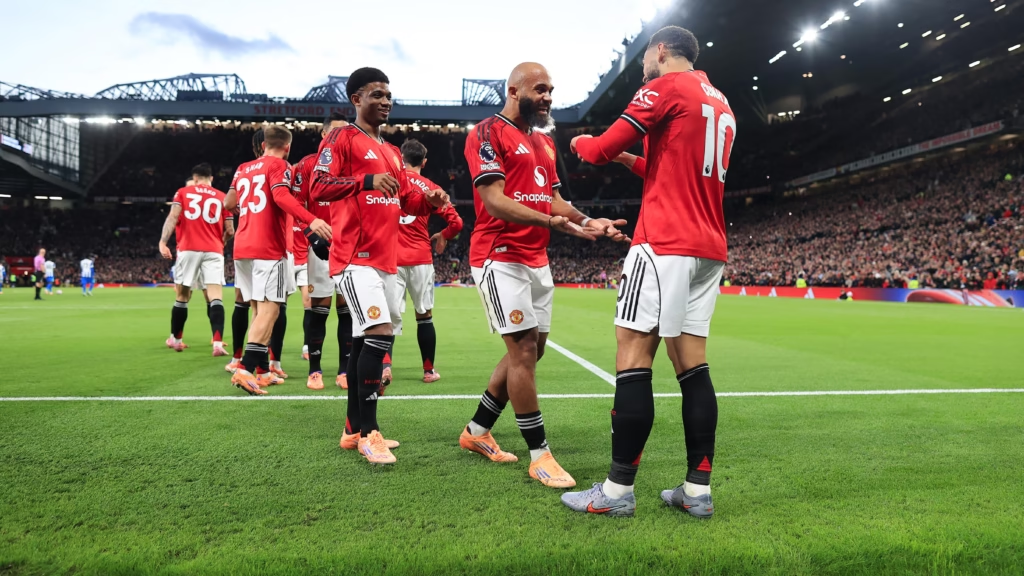
Conclusion: Manchester United – More Than a Club
Manchester United is not just a football team; it’s a symbol of resilience, hope, and global unity. From the tragedy of Munich to the triumphs of Ferguson, from the legends of old to the stars of tomorrow, Manchester United stands tall as one of the greatest clubs in football history.
Every era, every player, and every fan contributes to the legacy of Manchester United — a legacy built on dreams, determination, and the unwavering belief that “Glory, Glory Manchester United” will echo forever.




